“To have a budget deficit of around 7%,
with a sub- 4% unemployment rate,
is just totally irresponsible.”
I love this data series: Average hourly earnings x Avg. Weekly hours adjusted for 'Urban Wage Earners' CPI.
The new BIG LIE is that worker incomes are keeping up with (the understated) CPI.
No.
"The latest data point is 5.5% below the 1972 peak."
The problem with the above it that it uses the intentionally-understated (at least since hedonics were introduced in the mid-1990’s) CPI model, so real real wages are actually lower.
Not talked about enough: Average Weekly Hours
Here’s my favorite deflationist, Jeff Snider:
“The entire economy is being forced into bargain hunting because it is not strong, it's not resilient, incomes have not kept up with price changes, incomes are not catching up to price changes ,and the situation in 2024 -contrary to all mainstream expectations - is actually worsening.”
Greg Weldon on who’s buying gold
“Since July of 2022 700 tons worth of gold was sold in the ETFs, coin sales were down for the first time since 2019 in the first quarter, in 2024 for the first quarter January through March. At the same time Swiss and UK Imports were down 14 of the last 18 months. Why is that important? It means the bullion banks aren't the ones buying gold. All right, so who's buying gold? The Chinese have been buying gold, bigtime. Big Time, all right? Gold imports a record in January, 225 tons. That's a lot of gold.
The PBOC - People's Bank of China - stopped reporting their gold buying, so now the numbers are kind of difficult to find, so we rely on some private estimates. One of the more respected estimates puts the gold purchases last year at 700 tons, where was it 725 tons for the year. Last year, total Central Bank purchases were 1,000 tons, so 75% of total Central Bank purchases were in China, and the last two years are the only time ever Central Bank purchases a gold were 1,000 tons within a year, so the Central Bank is really accumulating gold, big time in China. When you're talking about that kind of accumulation, 590 tons in 2022, 725 tons last year, 225 tons in January, means almost 1,600 tons of gold China's taken off the market in the last 28 months. That's an enormous amount of gold.”
In Gold We Trust
Ronald-Peter Stöferle & Mark J. Valek’s Latest
Congressman Ron Paul asking Citadel-Intern Ben Bernanke about gold, 2011
Below the fold, Louis-Vincent Gave - in excerpts from a typically great interview with Demetri Kofinas - warns that America’s actions are undermining our biggest competitive advantage - the dollar’s world reserve currency status. We’re playing with fire.
Gave is French, and gives a non-American perspective of things. As I’ve mentioned before, most Americans never try to put themselves in the shoes of those whose countries we bomb or otherwise interact with. Most Americans - including many of our “leaders” - seem completely oblivious that there are seven or eight billion people out there who may not see things the way a typical American does (Greg Weldon above explains this about gold - Americans are sellers as everyone else is buying.) This willful ignorance is dangerous.
Also, Nancy Lazar, “democratizing investing” (a term I loathe), Ben Hunt on lowering rates, a nice piece university endowments and private-equity (i.e., locusts), fintech gone awry, Phil Bak and Mike Green on price-insensitive (i.e., passive) investing, managing inflation by trying to control the narrative, and the usual eclectica (which apparently is not an official word).
I’ll probably have a real estate-related post this weekend. Have a good one, amigos.
By the way, I un-paywalled Before the Deluge, Part 1.
Louis-Vincent Gave
“You've had a massive increase in debt that has primarily funded expenditures that give no return.”
“I'm older than you are. I'm 50. I started my career, let's say for the sake of argument, 30 years ago. When I started, the U.S. government had $4 trillion in debt. Today, it's got $34 trillion in debt, with debt growing by one and a half, 2 trillion a year. Now here's the thing: In the past 30 years, what did you get for that money? Where's the Hoover Dam? Where's the new interstate highway system?
I think the last major airport that was open in the US was the Denver Airport in 1991. So you've had a massive increase in debt that has primarily funded expenditures that give no return. It's gone into social transfers, it's gone into silly military operations, and that's the very definition of inflation. And so you see the inflation all around you. I think it's delusional to not see it.”
“The biggest comparative advantage by far of the United States is that the United States has the world's reserve currency.”
“If you go down the street and you ask a Greek what's the big comparative advantage of the US? They'll say it's easy. They have the US dollar. The biggest comparative advantage by far of the United States is that the United States has the world's reserve currency.
And the US has the world's reserve currency for many reasons. But one of them, of course, is that the US was always perceived as the safest place to deploy capital. Whether you're Chinese, whether you're Australian, whether you're Saudi - if I own a house in New York or an apartment in New York or a house in Miami or wherever else, I know nobody's going to invade that. Nobody can invade the U.S. So whatever money I have in the US, that is safe money.
So if you start off with the premise that, to the rest of the world, the biggest comparative advantage of the US is the safety of capital, and it's the fact that the U.S. dollar is the world's reserve currency. If you're a policymaker, what do you not want to do? You don't want to undermine that because that's your biggest comparative advantage…
Believe it or not, when the US says, you know what? When Russia invades Ukraine, we're going to take away the assets of any Russian guy that owns apartments in New York or in Miami, and we're going to freeze their bank accounts ,and we're going to impose that our European allies do the same. We've just undermined in the process the biggest comparative advantage that the US does. Now, if we compound this by saying, you know what we're going to do while we do this, while we grab the assets of foreigners, we're also going to run budget deficits of two to $3 trillion a year with absolutely no intention of ever getting this back under control.
Then, all of a sudden, you're sending a message to the rest of the world: hold on, is this really where I want to deploy capital anymore? And let's make no mistake about it, and this is not just the US, it's true for Western Europe as well. Our big comparative advantage is the fact that you can be black, brown, yellow, white, you can be Muslim, Jewish, Hindu, Christian, or whatever. You go in front of a court of law in New York City and you get the same fair shake as the next guy. You get the same fair shake as the next guy.
“The perception to the rest of the world now is, oh, the US is just like any other emerging market where the people in power can instruct district attorneys…”
And now we've added a little asterisk to this, and we've said, except if you're Russian, and except if you're Donald Trump, because to the rest of the world, if you're sitting in China today, if you're sitting in Saudi Arabia and you look at all these lawsuits that are being thrown at Donald Trump, you can't help but feel, oh, this is just like home. I know this.
This lawfare, this politically-driven prosecution, this lawsuit after lawsuit. Now again, I'm not American. I got no bones in this fight. I'm just saying the perception to the rest of the world now is, oh, the US is just like any other emerging market where the people in power can instruct district attorneys…
So the bond market is already adjusting to this new reality, and at some point, I think the equity markets will as well. In fact, the equity markets are starting to adjust for all to talk about how the only place you can be invested in US equities. The reality is that so far this decade, Mexico has outperformed the US, and India has outperformed the US., Brazil's done roughly the same. Even a basket case like Turkey has actually done the same as the US in US dollar terms. So the whole let's do industrial policy hides the bigger policy failure of undermining our single biggest comparative advantage, which is the rule of law and property rights in the Western world.”
The policies of this Administration - especially under our horrific Treasury Secretary Janet Yellen - have severely undermined foreign confidence in the U.S. as a safe haven.
Mexico, not so much it seems:
Phil Bak
“$120,000 for a banana. This was December, 2019, at Art Basel in Miami. An Italian artist duct taped a banana to the wall. It sold for $120,000. The state of modern art, ladies and gentlemen.
It’s easy to laugh at the decadence of the art world. It’s not as easy to laugh at the broader financial markets. And while it might sound insane that someone in the art world would set the market price for a banana at 120k, an increasing majority of financial market investors believe that market prices are the most efficient way to invest.
What I am saying is that passive index investors would have bought banana shares at 120k, because that's where the market was.”
Passive is price-insensitive investing.
If you remember, someone ate that banana:
Which segues nicely into Mike Green’s latest:
Mike Green on the Implications of Passive Investing
“We now actually have the ability to do research on transaction behavior that allows us to test that theory in ways that we couldn't have tested it before. When those were tested and put to the challenge in 2020 by two academics…they found out that the answer to a [passive] dollar going into the market or coming out of the market was not of one penny increase, it was a five dollar to 8 dollar increase, so 500 to 800 times mis-specified in the theoretical model that we've been operating under. Now the reason that becomes an issue is exactly what you're referring to, that means that the participation, and the growing participation, has had a much larger impact than we would have theoretically imagined. This helps to explain why market valuations have risen so much as people have been pushed into these strategies. The second thing though then obviously raises your awareness of is the outsized impact when they start to withdraw and there's two reasons why they withdraw. One you hit on was job loss…the second reason though is simply retirement and death.”
“We are really looking at a market that is extraordinarily narrow, both from a fundamental expectation standpoint, and from a market capitalization representation standpoint. That to me creates significant risk.”
“Recognize the fact that the market is going to new all-time highs is not an economic signal that tells you that growth is incredibly robust, or that inflation is in a runaway construction, it simply tells you that this is how the allocation systems are built. Things like target-date funds do not care about the relative valuation of equities and bonds, they simply reference the age of the participants and slowly start rotating them into bonds and fixed income as they get older, but there is no mechanism for them to accelerate that or to change their allocations.”
Nancy Lazar on a Looming Recession
“You have small businesses that are in recession territory. The NFIB Index, that's called National Federation of Independent Business Survey of Small Businesses, is very deep in recession territory, weaker than it was in the 1990-'91 recession. Weaker than it was in the 2001 recession. Not as bad as it was in the GFC, but it's pretty weak.
And then second, is a very bifurcated economy for consumers. The high-end consumer, middle-end consumers, have been benefiting from a high stock market [that’s overwhelmingly the high-end - rh], a decent house price backdrop, if not a strong house price backdrop. They don't have to get new mortgages. They have a 3% mortgage. They're not struggling in finding affordable housing. They already have affordable housing.
But the low-income consumer is in recession territory. Wage gains in that sector have slowed. Price levels have stayed elevated. Their credit card debt is through the roof. We just got a new reading on auto delinquencies. Subprime auto delinquencies are at a record high. And so we have a very bifurcated economy, unstable economy.”
LFG!!!
“Robinhood Markets announced this morning that it will slash the interest rate it charges on margin loans, furthering its mission to democratize investing by encouraging customers to borrow against their portfolios.
The millennial- and Gen Z-friendly trading app now offers 6.75% financing on balances up to $50,000, with that rate dropping to 5.7% on accounts of $50 million and above. That compares to prior margin loan rates ranging from 8% to 12%, and the 11.83% to 13.58% borrowing schedule on offer at rival brokerage Charles Schwab.”
Several people recommended this article on University Endowments and Private-Equity
The University Endowment Train Smash
What if the virtuous PE/VC cycle of new money coming into the asset class which leads to rising valuations and liquidity is about to go in reverse?
Could PE investments lose money? Can that even happen?
As I see this playing out the major endowments will put pressure on the PE firms (KKR, Carlyle etc) to do deals and generate some realisations. The liquidity needs mean they will pressure the PE firms to do deals, even if the prices aren’t great. They will also try to negotiate themselves out of their fund commitments.
And could this pressurised selling lead to a decline in valuation multiples? Kind of like what has happened to value stocks over the last 10 years as money went into index ETF’s?
If PE multiples start to soften, then the returns also look bad. This means less new money coming into the space, further exacerbating the liquidity problem. The virtuous cycle turns vicious.
For the endowments there is also the problem of paying the exorbitantly high annual contributions the Ivy League university has gotten used to. These numbers are built into their budget. They can’t go in reverse.
So now the endowment has to sell whatever it can, which is cash, bonds and public equities.
Over time, if this situation persists, the endowment finds that as it keeps selling bonds and stocks to pay the university, it has a greater % of the remaining fund allocated to illiquid PE investments it can’t get out of.
This is the train smash. And it happens gradually over time.
“Princeton has the best chart on this. In 1999 they had 15% in Private Equity. By 2024 it was 30%. But it wasn’t really 30%. Actually, it was 40%. 30% was just the target.”
Fintech nightmare: ‘I have nearly $38,000 tied up’ after Synapse bankruptcy
“A dispute between a fintech startup and its banking partners has ensnared potentially millions of Americans, leaving them without access to their money for nearly two weeks, according to recent court documents…
The freeze-up of customer funds exposes the vulnerabilities in the banking as a service, or BAAS, partnership model and a possible blind spot for regulatory oversight.
The BAAS model, used most notably by the pre-IPO fintech firm Chime, allows Silicon Valley-style startups to tap the abilities of small FDIC-backed banks. Together, the ecosystem helped these companies compete against the giants of American banking.”
“Synapse serves as a middle man between customer-facing fintech brands and FDIC-backed banks, but it has had disagreements with several of its partners about how much in customer balances it owed.”
Let’s check what the Reddit apes are saying:
More color:
"There's A Bank Run That's Going To Happen," Synapse CEO Says In Leaked Internal Meeting
“Other banks or fintech companies that San Francisco-based Synapse partnered with included Tennessee-based Lineage Bank, as well as savings rewards company Yotta, a company that gives prizes to customers who save money. Reddit message boards for Evolve, Synapse and Yotta were full of customers complaining about being unable to access their funds.”
Here is a Yotta subreddit if you’re interested in digging deeper. You can probably find the others if you have money involved in this mess.
Now they tell you!
“The writer is a former chair of Yale’s Investment Committee, an ex-board member of Vanguard and the author of 21 books, mainly about finances and investing.”
I looked him up, and saw this from 2017: Charles Ellis has no bonds in his portfolio
He didn’t look smart for a while, but “super-safe” T-bonds are now lower than 2017:
Reminds me of the late 1990’s, when I looked dumb for a year or so, and then suddenly I became smart.
Hmmm…Credit Spreads…
As an aside:
Managing “inflation more by controlling the narrative than by actually addressing it directly.”
“There is a major problem with using TIPS-implied inflation expectations as a report card for Fed policy and that is the fact that the Fed, after buying up more than a quarter of the total outstanding, is now the single most dominant force in the market for TIPS! To some degree then the Fed, in managing its TIPS portfolio via QE and QT, is able to write its own report card. And this at least creates the temptation to try to manage inflation more by controlling the narrative than by actually addressing it directly.”
Jesse Felder
I’m sure glad I’m not the only one who see through Rick Rieder’s bullsh*t.
Matt Zeigler: “Our dear old friend at BlackRock he thinks we should cut rates this summer.”
Ben Hunt
“Let's talk about - for our audience - Blackrock is the largest asset manager in the world….we're talking trillions with a T. It's a big number. It's bigger than many countries’ economies…Rick Rieder is the guy who runs their fixed income portfolio…So he comes on and says hey, you know what we need to beat inflation? I think we need a rate cut. We need a rate cut.
He comes out and says this, which, so everybody understands, when interest rates go down, the price or the value of a fixed income instrument goes up. So what Rick Rieder is saying is we need the number to go up for my massive holdings of fixed income assets and I want to do this - not because I want to be richer - but because I'm going to make an argument this is how you stop inflation. This is how you stop inflation.
Oh my goodness, we're making so much money with the interest rates being so high that, gosh, you need to cut that because the the rich have got it so good now, that the way to cut inflation is to to make them a little more uncomfortable by cutting interest rates, which is just is madness any way you think about it. I mean the people who benefit from cutting interest rates are the people on Wall Street who own financial assets. Oh my God.
And everyone on Bloomberg and CNBC is nodding - oh yeah, this is a serious policy idea. What world are we living in? It's got to be some sort of simulation, it really does, where these these just nonsense statements, totally self-serving, are made everybody goes, okay, that must be serious, that that sure sounds smart.”
Big in Japan
I present to you, the 10-year Japanese Government Bond Yield
I saw this quote again this week. It’s usually attributed to Joseph Goebbels:
“If you tell a lie big enough, and keep repeating it, people will eventually come to believe it. The lie can be maintained only for such time as the State can shield the people from the political, economic and/or military consequences of the lie. It thus becomes vitally important for the State to use all of its powers to repress dissent, for the truth is the mortal enemy of the lie, and thus by extension, the truth is the greatest enemy of the State.”
Apparently there’s no evidence Goebbels ever wrote it. That said, I think it’s still a fairly accurate take on how the State operates, certainly during wars and pandemics.

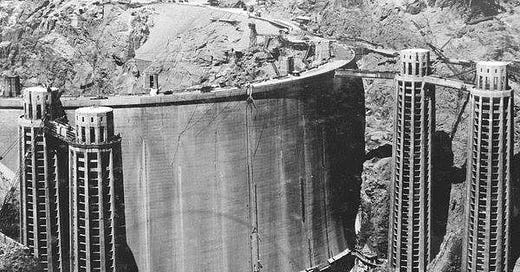


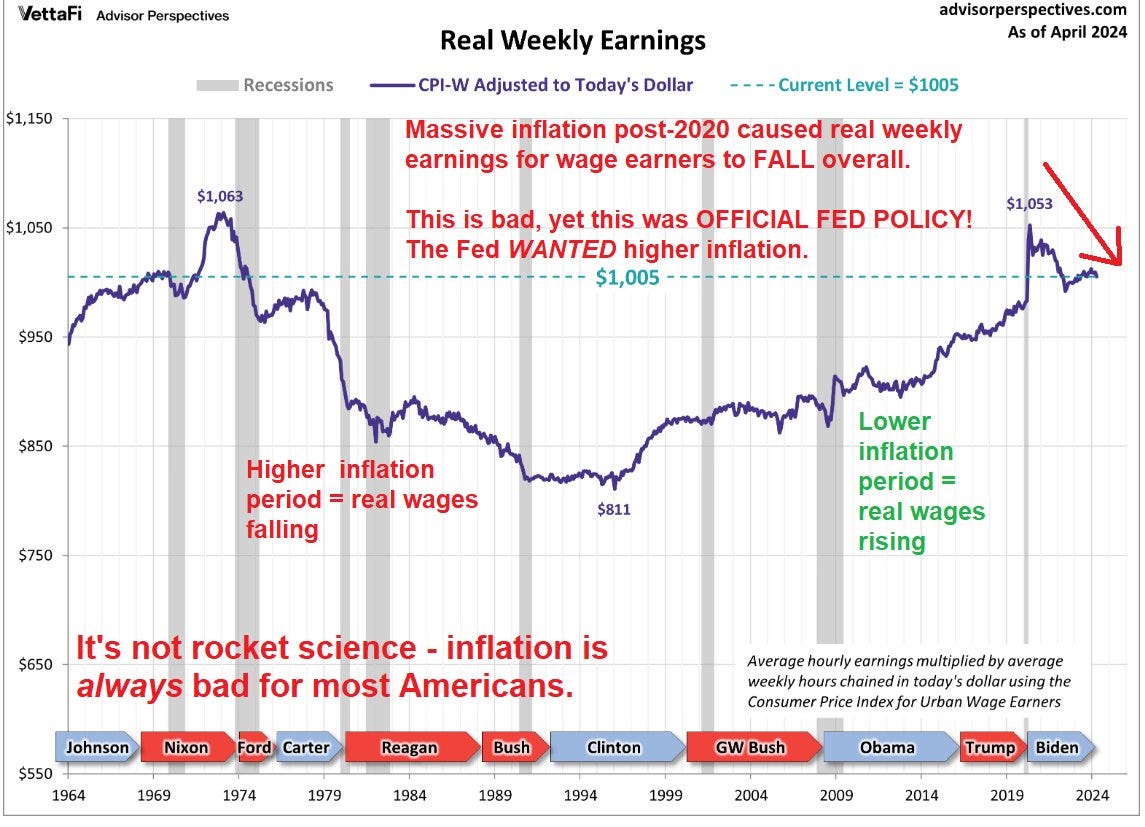


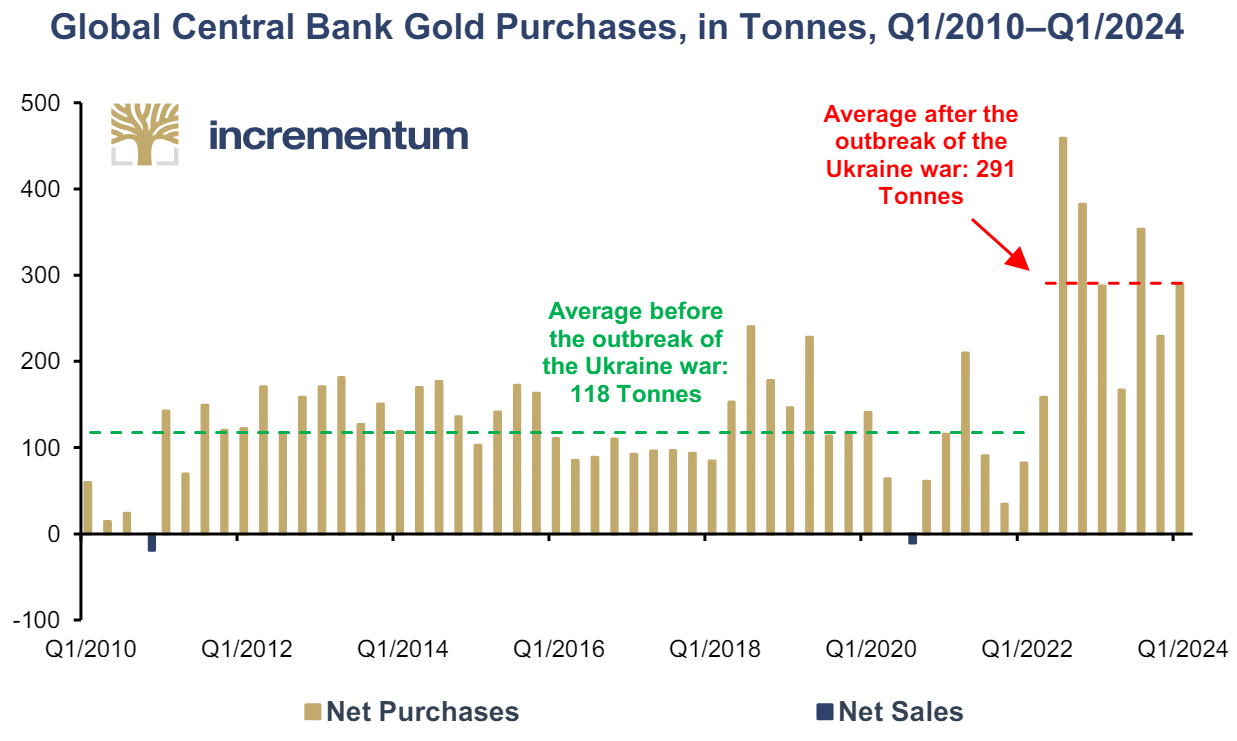
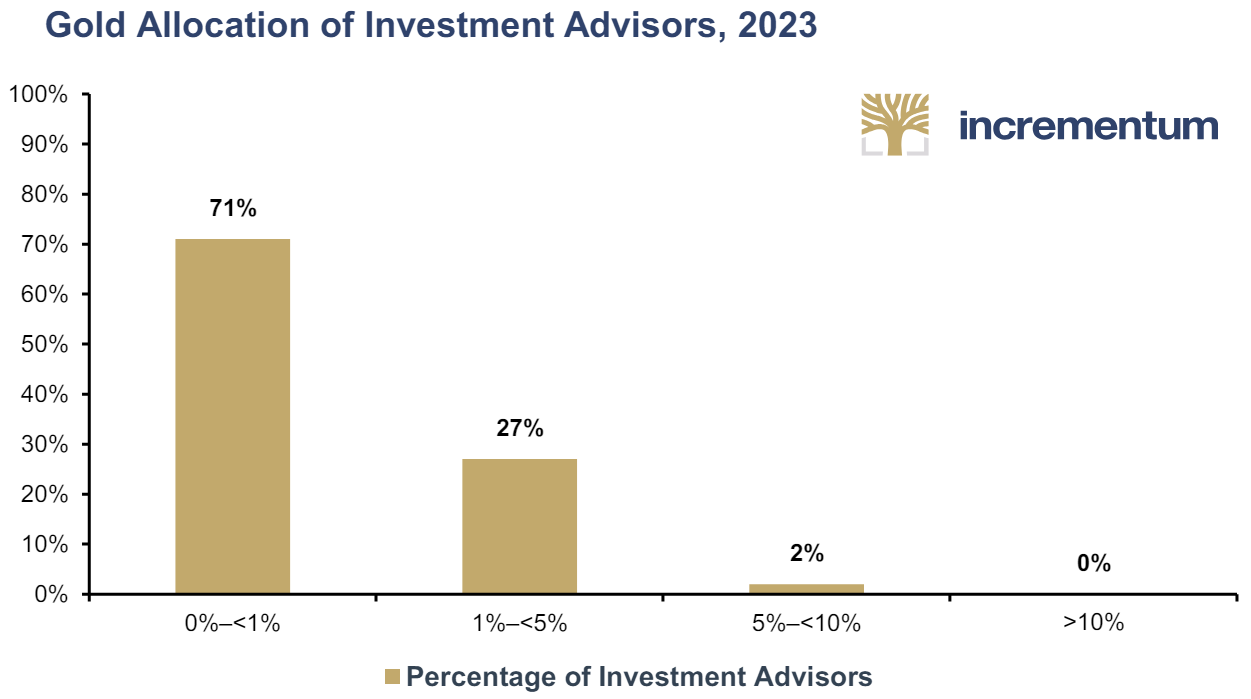







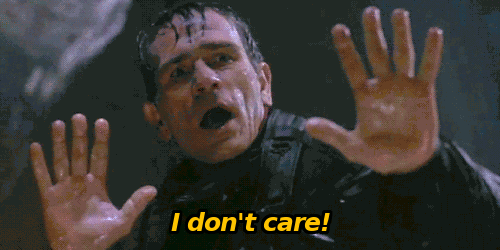
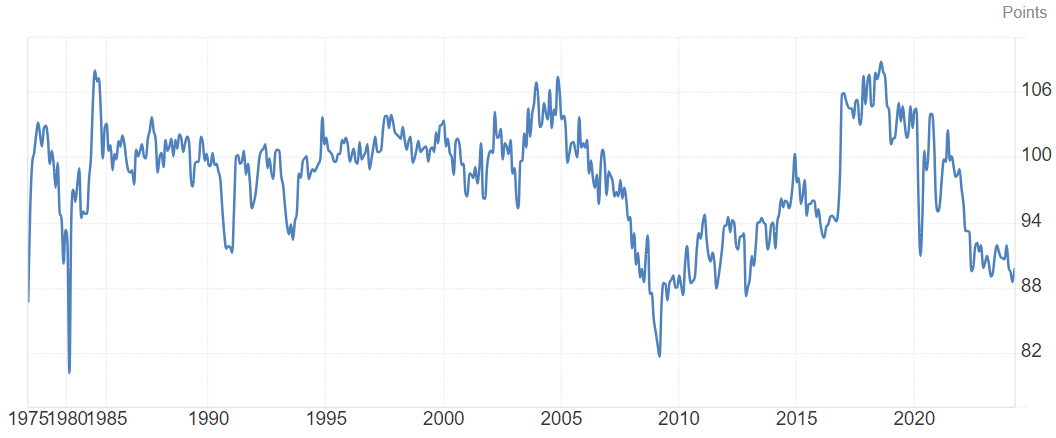












This quote: “So the whole let's do industrial policy hides the bigger policy failure of undermining our single biggest comparative advantage, which is the rule of law and property rights in the Western world.” We broke contract law in the GFC. It’s been downhill ever since.
Throwing away our advantage as the world’s reserve currency by pursuing a mindless proxy war with no discernible American interests at stake while we blow up the federal budget with zero plans to ever get it under control … history books will be written about the idiocy of the 2020s.